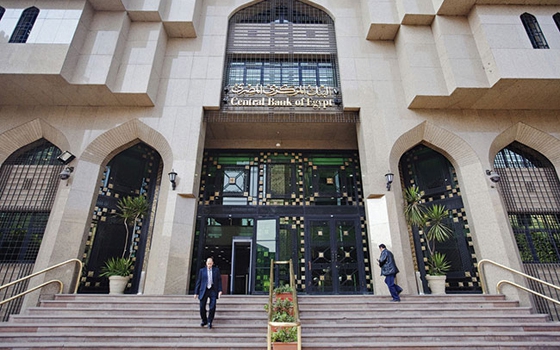Egypt will receive in March the second $1 billion tranche of a $3 billion World Bank (WB) loan aimed at supporting a government economic reform program, central bank Gov. Tarek Amer said.
The country has been negotiating billions of dollars in aid from various lenders to revive an economy hit by political upheaval since a 2011 revolt and to ease a dollar shortage that has crippled imports and hampered its recovery.
Facing a gaping budget deficit, Egypt began a series of painful economic reforms and has been taking steps to loosen capital controls, end energy subsidies, reform public enterprises and overhaul monetary policy.
The central bank floated the Egyptian pound in November to attract foreign capital, and the currency has weakened from 8.8 pounds to the US dollar to roughly 20 pounds in December but rallied to around 16 pounds last week.
“The inflationary shock has happened; liberalizing the exchange rate will not have an effect on inflation again,” Amer told local channel DMC in a televised interview.
He said the currency floatation allowed the central bank to provide $1.5 billion for payments to international oil companies this year. Egypt imports $1 billion worth of fuel every month, he said.
Enough dollars, $13.5 billion, have flowed into local banks since November, allowing them to let foreign companies repatriate profits, Amer said, something they were unable to do for the past few years.
Egypt had roughly $36 billion in reserves before an uprising in 2011 ushered in a period of political turmoil.
Reserves were almost halved by September but have been building up ever since the float, which helped Egypt clinch a $12 billion three-year loan from the International Monetary Fund (IMF), and were at $26.363 billion by the end of January.
Egypt has imported goods worth some $15 billion since the float.
“The budget is coming under control and we are now seeing fiscal discipline,” he said.
Reuters
27 February























































